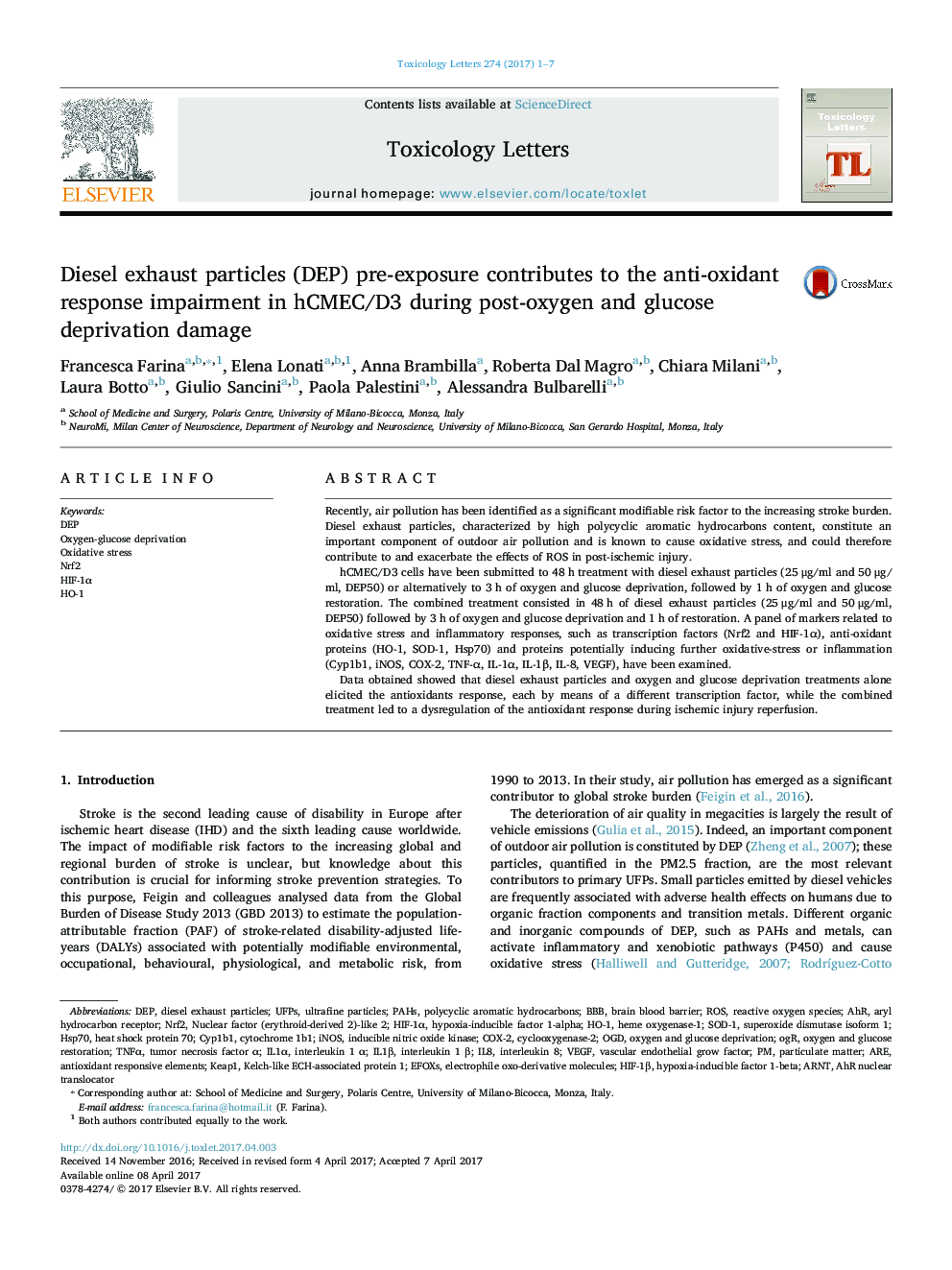| کد مقاله | کد نشریه | سال انتشار | مقاله انگلیسی | نسخه تمام متن |
|---|---|---|---|---|
| 5562078 | 1562599 | 2017 | 7 صفحه PDF | دانلود رایگان |

- Antioxidants mechanisms are activated in response to DEP and ischemic injury.
- The combined treatment (DEPÂ +Â ischemic injury) prevented Nrf2 increase.
- The lack of antioxidant proteins could impair cell functions.
Recently, air pollution has been identified as a significant modifiable risk factor to the increasing stroke burden. Diesel exhaust particles, characterized by high polycyclic aromatic hydrocarbons content, constitute an important component of outdoor air pollution and is known to cause oxidative stress, and could therefore contribute to and exacerbate the effects of ROS in post-ischemic injury.hCMEC/D3 cells have been submitted to 48 h treatment with diesel exhaust particles (25 μg/ml and 50 μg/ml, DEP50) or alternatively to 3 h of oxygen and glucose deprivation, followed by 1 h of oxygen and glucose restoration. The combined treatment consisted in 48 h of diesel exhaust particles (25 μg/ml and 50 μg/ml, DEP50) followed by 3 h of oxygen and glucose deprivation and 1 h of restoration. A panel of markers related to oxidative stress and inflammatory responses, such as transcription factors (Nrf2 and HIF-1α), anti-oxidant proteins (HO-1, SOD-1, Hsp70) and proteins potentially inducing further oxidative-stress or inflammation (Cyp1b1, iNOS, COX-2, TNF-α, IL-1α, IL-1β, IL-8, VEGF), have been examined.Data obtained showed that diesel exhaust particles and oxygen and glucose deprivation treatments alone elicited the antioxidants response, each by means of a different transcription factor, while the combined treatment led to a dysregulation of the antioxidant response during ischemic injury reperfusion.
Journal: Toxicology Letters - Volume 274, 15 May 2017, Pages 1-7